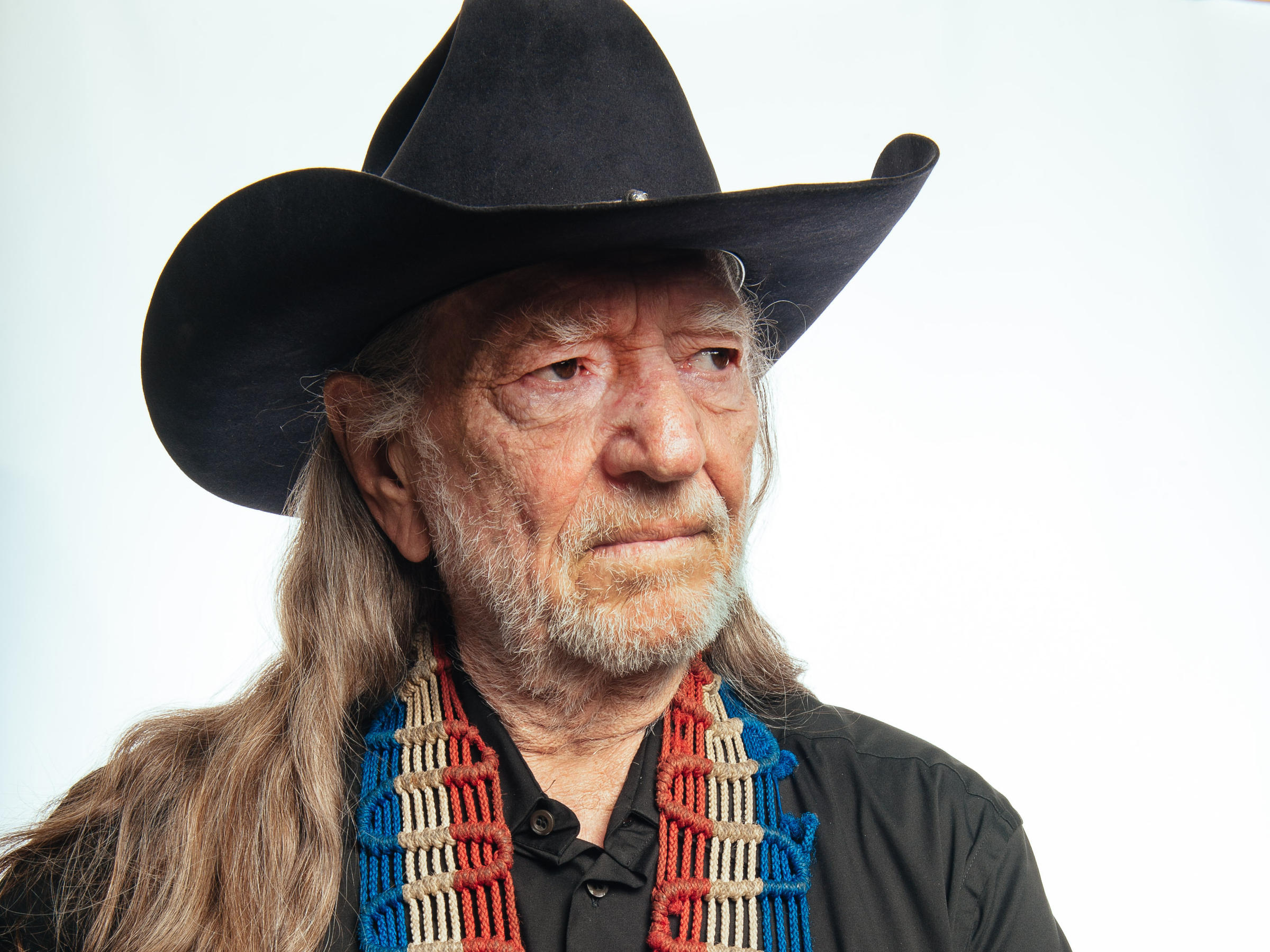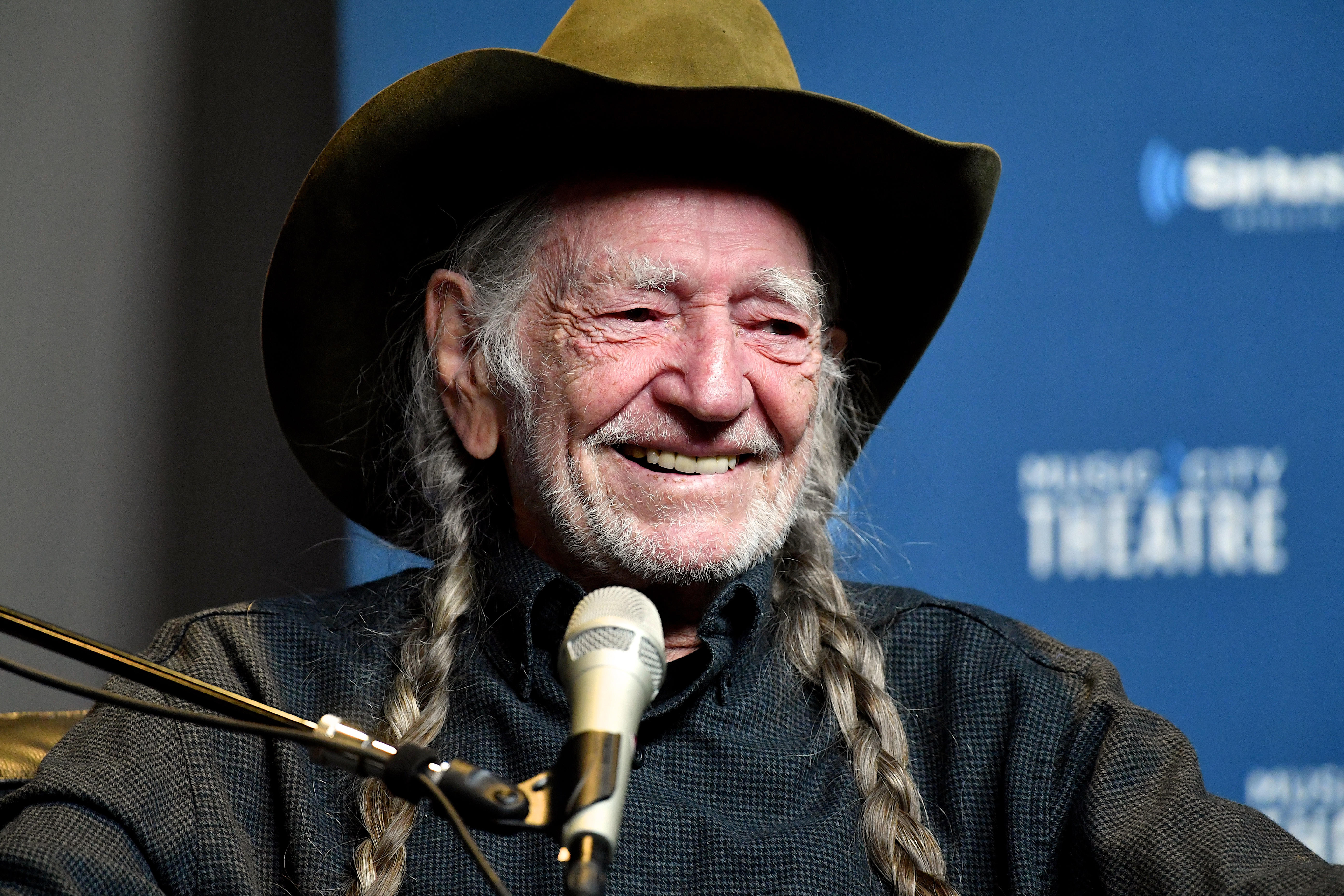Willie Nelson, an iconic figure in the world of country music, has left an indelible mark on the industry and American culture as a whole. From his humble beginnings to his status as a global superstar, Nelson’s journey has been one of innovation, authenticity, and unwavering commitment to his craft.
Nelson’s musical style, a blend of traditional country, folk, and blues influences, has captivated audiences for decades. His outlaw persona, defined by his independent spirit and refusal to conform, has made him a symbol of rebellion and individuality within the country music scene.
Willie Nelson’s Musical Journey
Willie Nelson, the legendary singer-songwriter and icon of outlaw country music, has had a remarkable musical journey spanning over six decades. His music has touched the hearts of millions, influencing generations of musicians and shaping the landscape of American music.
Nelson’s musical journey began in the early 1960s, when he moved to Nashville and signed with Liberty Records. His early songs were heavily influenced by traditional country and honky-tonk music, with a distinctive blend of humor and heartbreak. In 1962, he released his debut album, “And Then I Wrote…”
Genre Influences and Evolution, Willie Nelson
Throughout his career, Nelson has explored various musical genres, including folk, blues, rock, and gospel. His music has been influenced by a wide range of artists, from Hank Williams and Bob Dylan to Ray Charles and Muddy Waters.
In the 1970s, Nelson emerged as a leading figure in the outlaw country movement, a group of artists who rejected the Nashville establishment and its polished sound. Nelson’s music became more introspective and personal, with a raw and authentic feel.
Outlaw Country Persona
Nelson’s outlaw country persona played a significant role in his music and career. He became known for his rebellious spirit, his long hair, and his refusal to conform to industry standards. His outlaw image resonated with audiences who saw him as a symbol of independence and authenticity.
Nelson’s outlaw status extended beyond his music. He became an outspoken advocate for marijuana legalization and other social causes. His activism further cemented his status as an icon of counterculture and a voice for the disenfranchised.
Willie Nelson’s Songwriting and Lyrics

Willie Nelson’s songwriting is renowned for its poignant lyrics and evocative imagery, exploring themes of love, loss, freedom, and the human condition. His ability to craft relatable and emotionally resonant songs has earned him widespread acclaim as one of the greatest singer-songwriters of all time.Nelson’s lyrics often draw upon personal experiences, creating a sense of authenticity and vulnerability that resonates with listeners.
He has a gift for storytelling, weaving intricate narratives that unfold with vivid detail and emotional depth. His use of symbolism and metaphor adds layers of meaning to his songs, inviting listeners to delve deeper into the underlying themes and messages.
Themes and Motifs
- Love and Relationships:Nelson’s songs frequently explore the complexities of love, from the euphoria of new romance to the heartbreak of loss. He delves into the themes of unrequited love, infidelity, and the enduring power of human connection.
- Freedom and Independence:Nelson’s lyrics often express a deep-seated yearning for freedom and independence. He celebrates the open road, the spirit of adventure, and the importance of living life on one’s own terms.
- The Human Condition:Nelson’s songwriting delves into the universal experiences of the human condition, exploring themes of mortality, loneliness, and the search for meaning in life.
- Nature and the Environment:Nelson’s love for the natural world is evident in his lyrics, which often celebrate the beauty and fragility of the environment.
Influences
Nelson’s songwriting has been influenced by a diverse range of musical genres, including country, folk, blues, and jazz. He has cited Hank Williams, Bob Dylan, and Ray Charles as major influences, and his music reflects their impact on his own style.
Nelson’s unique blend of musical influences has resulted in a sound that is both timeless and instantly recognizable.
Willie Nelson’s Impact on Country Music
Willie Nelson’s contributions to country music are profound and far-reaching. His unique blend of traditional and progressive elements has left an enduring mark on the genre, and his influence continues to shape country music today.
Outlaw Country Movement
Nelson was a key figure in the outlaw country movement of the 1970s, which challenged the established Nashville sound. Outlaw country artists like Nelson, Waylon Jennings, and Johnny Cash rejected the polished, commercialized style that had come to dominate country music in favor of a more raw and authentic approach.
Nelson’s outlaw persona was reflected in his music, which often dealt with themes of rebellion, individuality, and the search for freedom. His songs were often characterized by their simple, direct lyrics and their use of traditional country instrumentation.
Influence on Subsequent Generations
Nelson’s influence on subsequent generations of country musicians is undeniable. His music has inspired countless artists, including Garth Brooks, Brad Paisley, and Miranda Lambert.
Nelson’s legacy lies not only in his own music but also in the impact he has had on the genre as a whole. He helped to break down the barriers between country and other genres, and he paved the way for a new generation of country artists to express themselves more freely.
Willie Nelson’s Cultural Impact
Willie Nelson has transcended the realm of music, becoming a cultural icon and a symbol of American counterculture. His activism, advocacy, and unique persona have left an indelible mark on American society.
Activism and Advocacy
Nelson has been a vocal advocate for various causes throughout his career. He has been an outspoken supporter of environmental protection, animal rights, and the legalization of marijuana. Nelson’s activism has extended beyond words, as he has participated in protests, rallies, and benefit concerts to raise awareness and support for his beliefs.
Cultural Icon
Nelson’s unique blend of country music, folk, and blues has earned him a diverse and loyal following. His iconic look, complete with his signature red bandana and long braids, has become synonymous with American counterculture. Nelson’s laid-back demeanor and outspoken views have resonated with generations of fans, who see him as a symbol of freedom, individuality, and authenticity.
Impact on American Society
Willie Nelson’s cultural impact extends beyond his music and activism. He has been a role model for artists and activists alike, inspiring them to use their voices for social change. Nelson’s music has also played a significant role in shaping American culture, with his songs becoming anthems for generations of Americans.
Willie Nelson’s Legacy and Influence

Willie Nelson’s enduring legacy as a musical icon is a testament to his exceptional artistry and enduring impact on popular culture. His distinctive blend of country, folk, and blues, coupled with his outlaw persona, has made him one of the most recognizable and influential musicians of all time.
Cultural Impact
Nelson’s music has transcended the boundaries of genre, appealing to a diverse audience across generations. His iconic songs, such as “On the Road Again” and “Crazy,” have become ingrained in the American cultural landscape, often used in films, television shows, and commercials.
His distinctive vocal style and heartfelt lyrics have resonated with audiences worldwide, cementing his status as a beloved and enduring figure in popular culture.
Longevity and Popularity
Several factors have contributed to Nelson’s remarkable longevity and enduring popularity. His ability to adapt to changing musical trends while staying true to his roots has allowed him to maintain relevance over several decades. His collaborations with a wide range of artists, from Bob Dylan to Snoop Dogg, have further broadened his appeal.
Additionally, his unwavering commitment to social and environmental causes has endeared him to a diverse audience, making him an enduring symbol of authenticity and integrity.
Final Conclusion

Willie Nelson’s legacy extends far beyond his music. As an outspoken activist and advocate for various causes, he has used his platform to promote social justice, environmental protection, and the legalization of marijuana. His impact on American culture is undeniable, as he has become a beloved figure representing the values of freedom, authenticity, and compassion.